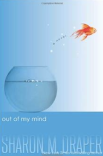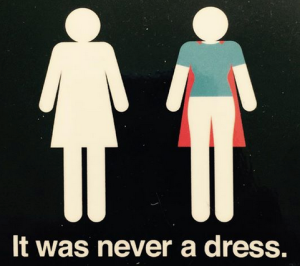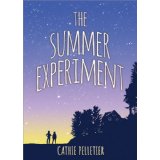Teaching Place Value and Kidwatching
Yetta Goodman, way back in 1978, coined the term, kidwatching. Kidwatching is an observational assessment of children’s performance and responses to instruction throughout the school day. Anecdotal records or more structured teacher checklists often document kidwatching. It’s truly one of the most effective ways of learning about children and how they think…and today, in my 4th grade math class, I saw some really cool behaviors and learned some new things about many of my kids.
I began 2 weeks ago teaching a group of 4th graders (and one 3rd grader who joins that group) about binary numbers. One of our goals for teaching place value is to help kids understand that the PLACE of a digit tells the VALUE of that digit. Kids typically don’t get that, either verbally or intuitively–but they have memorized the decimal place value chart by 4th grade, so the strategy many kids use is to read the whole number, then look back at the question to find which digit they need to name, then try to remember what they said as they read the number, or make a place value chart so they can translate that one digit from what they they just said. Sound confusing? It is–and there are many, many kids who make silly mistakes on tests, simply because they don’t understand the bold italicized sentence above. They think the digits cannot stand alone in that place, without the whole number.
So I decided to try to teach that sentence to understanding with these kids who come to me for extension in math two days a week.
Here’s what I did:
The first day, I began with a quick preassessment where I asked them to copy into their journal this sentence “There are 10 kinds of people in the world, those who understand binary numbers, and those who don’t.”
I asked them to write a brief comment on what they thought it might mean. Most just repeated or reworded the sentence a bit, not seeing anything wrong with saying ten when they saw the 1 and 0.
Then, we used a website, Math Is Fun, and scrolled down on that page to the section labeled decimal vs. binary. Next, we discussed what place value meant, then we talked about the word part “bi” and thought of other words that have bi- in them and then I gave a quick intro to how binary numbers worked. I talked about computers, showed them the periods of the binary system and they immediately made connections between the sizes of their iPads and computers, and they brought up the game 2048, recognizing the binary numbers from playing that game in 3rd grade.
I deliberately used the terms decimal number system and binary number system instead of base 10 and base 2, because I wanted them to relate to the word system and look for the system of the numbers we were going to compare. That was the end of that day’s lesson.
For the next several days they first made the binary chart from 1-20, then worked on a couple of worksheets converting binary numbers to their decimal equivalents and decimal numbers to their binary equivalents. They also had some addition and subtraction problems regrouping binary numbers.
This week, in their homerooms, they began a multiplication unit. I had planned this week to have them work in other bases to make sure they understood how the number systems worked, so I decided to continue that. At the beginning of today’s class, one kid raised her hand and asked me what bases had to do with multiplication and why weren’t we working on multiplication. I responded that I had decided to go ahead and finish out the work on bases I had planned, knowing that after today’s work, she would understand.
Today’s work was varied, depending on the kid–some were simply working through all bases 3-9 to write the numbers 1-20. Others were counting in bases at a random decade (from 70-90 in base 8, for example.) Yet others were taking random numbers (49, 76, 114, 162, etc.) to convert them to several different bases. Most were making up their own challenges for themselves, sometimes depending on their interest, and sometimes depending on the partner they had chosen. They were all totally engaged, and working hard the whole hour they were in my room.
So, at the end of class, two boys came up to ask me to check their work on converting a number in the decimal system (that was in the thousands) to their base 4. They were absolutely correct, and I asked them how they had figured it out without a periods chart. They then turned the paper over and showed me their chart of 4 to the 5th power-1, 4, 16, 64, 256, 1024. The number they were trying to convert was 1,028. They said when they saw 256, they had doubled it, and when they saw 512, they remembered from 2048 (the game) that 512 doubled to 1024, so they knew the conversion then- 1 set of 1024, 0 sets of 256, 64, or 16 + 1 set of 4, and no sets of 1s or, in base 4, 100010.
I asked them if they had used multiplication and they said yes–so I then asked the class if they had used multiplication while working in different bases, and they resoundingly answered yes! They also said they had had fun and they were looking forward to tomorrow’s class to keep going. The girl who had asked what bases had to do with multiplication at the beginning of the lesson asked me at the end if she could work on her charts during lunch–I asked her how much she had used multiplication in the last hour and she said “about a billion times.”
I was surprised by today’s class for several reasons…the ability they had, as a group, to manipulate numbers in their heads was so different from a 5th grade class I worked with another day, their remembering the numbers from the 2048 game and their use of them in the bases, a kid saying he needed to really understand bases so he could do better programming since he was going to be a computer programmer when he grows up, the engagement of all 17 kids, even a few who were new to the class today, and the total immersion in setting up challenges for themselves as they worked to understand the patterns and ways each base worked.
The fact that most of them were totally working independently, working with a partner, (so there were checks and balances) and having fun was great. But the conversations and explanations I heard clearly said they understand the systems better now that when we began last week. The fact they were looking for combinations of factors of a number showed their deep understanding of decomposing numbers. And, the way they were manipulating digits in various places to both show that factoring and the total number said they have grasped some major understandings of place value–my original goal. Today was a day for kidwatching. Now to help them verbalize those understandings and consciously recognize what they know and have learned…that’s tomorrow’s work.






